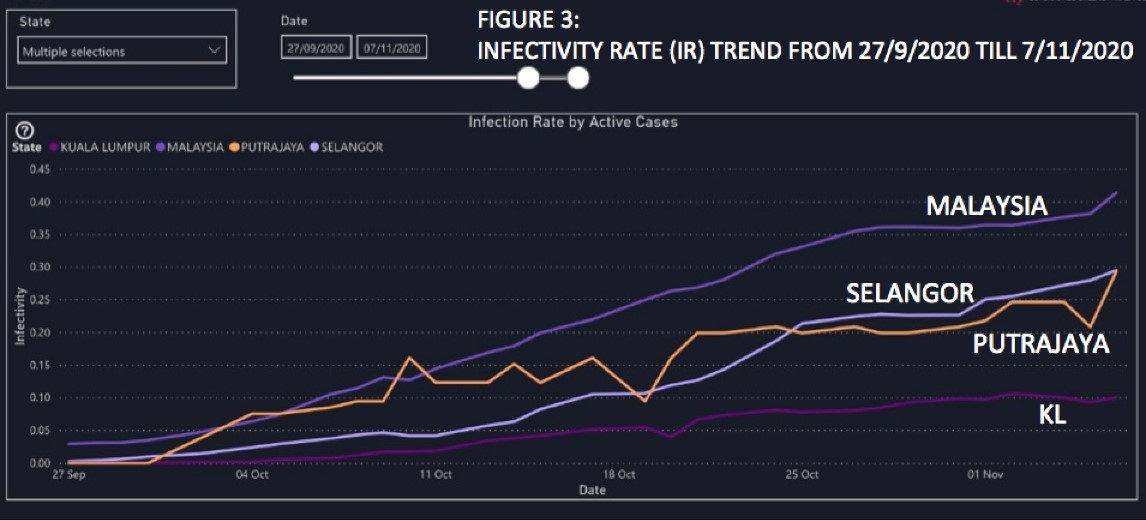KUALA LUMPUR, Nov 11 — Malaysian health authorities believe that it will take almost a year to contain the current third wave of the Covid-19 epidemic, The Straits Times reported.
According to the Singaporean newspaper, Prime Minister Muhyiddin Yassin had initially planned to call for a general election — amid political instability due to Perikatan Nasional’s razor-thin majority in Parliament — after PN wrested Sabah from Warisan in the September state election. But the surge of Covid-19 cases nationwide after the Sabah election campaign halted his plans.
Muhyiddin may be forced to wait a year to call for an election, likely at the end of 2021, as official sources told The Straits Times that health authorities project nearly a year to contain the third wave of the Malaysian coronavirus epidemic.
The one-year projection to contain Covid-19 in Malaysia matches the prediction by Dr Anthony Fauci, the White House coronavirus taskforce’s most senior public health expert, who estimated last September that it would probably take until the end of 2021 for life in the United States to return to a sense of pre-Covid normality.
Malaysia’s National Security Council (NSC) has expanded the Conditional Movement Control Order (CMCO) across nearly all states in peninsular Malaysia for four weeks from November 9 until December 6, despite the absence of widespread Covid-19 outbreaks in most of the peninsula. The CMCO expansion comes on top of previous four-week-long movement restrictions in the Klang Valley, the country’s economic centre.
The Academy of Medicine of Malaysia (AMM), a group representing medical specialists, has demanded that the government explain the science behind the blanket CMCO, pointing out that only Negeri Sembilan has a higher Covid-19 case incidence rate per 100,000 population than the national rate in the peninsula.
AMM expressed concern about the impact of prolonged lockdowns on the economy, particularly small and medium businesses, and on children, as schools nationwide, even in states not under CMCO, were closed from November 9.
Johor Mentri Besar Hasni Mohammad, in a statement yesterday, urged the federal government not to implement a state-wide CMCO on Johor, but to instead enforce targeted movement restrictions in red zones with a high number of Covid-19 infections.
Paediatrician Dr Musa Mohd Nordin has noted that the infectivity rate (the number of active Covid-19 cases per 1,000 population) trends in Selangor, Kuala Lumpur, and Putrajaya from September 27 to November 7 were well below the national average. The infectivity rate trends in both Selangor and Putrajaya are decelerating compared to the period of October 11 to 25, except for the most recent uptick in Putrajaya.
Health director-general Dr Noor Hisham Abdullah reportedly said yesterday that the CMCO may be lifted early if most districts classified as red zones turn green, or report zero new Covid-19 cases, within the next two weeks. He also said the CMCO — which was implemented in the Klang Valley, Sabah, and Labuan — has reduced the nationwide Covid-19 infectivity rate, the R0, from 2.2 on September 20 to below 1.0 yesterday. An R0 of below 1.0 indicates that the outbreak is dying out, as a 1.0 value means one Covid-19 case transmits the infection to another person on average.
Since October, when Malaysia began reporting more than 100 Covid-19 cases a day, predominantly in Sabah, the Ministry of Health (MOH) has repeatedly targeted reducing the nationwide R0 to 0.5, even though medical experts noted that at no point in time was health care capacity in peninsular Malaysia compromised. MOH has even claimed that the public health care system in Sabah, which suffered the brunt of the virus, had never collapsed.
The World Health Organization’s (WHO) special envoy on Covid-19, Dr David Nabarro, has advocated against the use of lockdowns as the primary method of control of the virus, saying that lockdowns are only justified to buy time to rebalance resources: “Lockdowns just freeze the virus … they do not lead to elimination.”
“Flattening the curve” simply means preventing a surge of Covid-19 cases from overwhelming the health care system; it does not mean eliminating the virus. In other words, a steady transmission of the coronavirus — even if hundreds of cases a day are reported nationwide consistently — may be acceptable if this does not exceed health care capacity, which has proven to be the case in Malaysia during the third wave.








